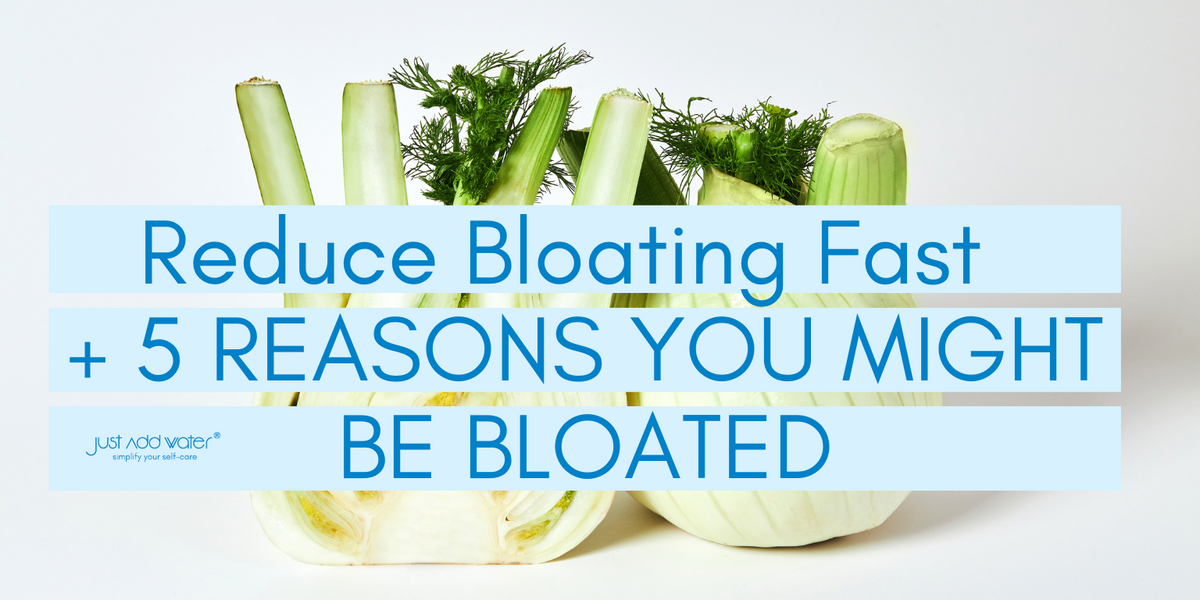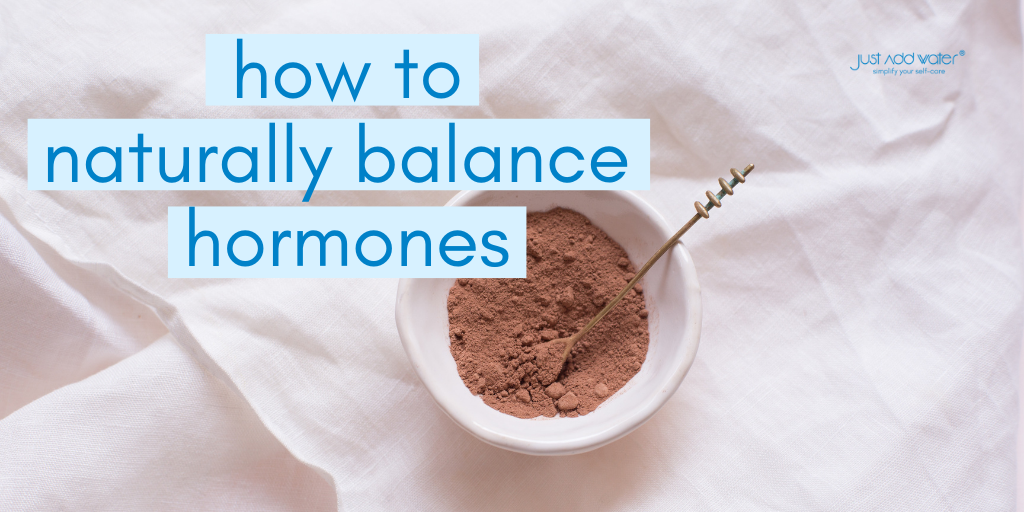How The Happiness Hormones Are Affected By Your Gut & Hormonal Health
The secrets to happiness and living forever… the two most sought after matters in the history of the world. Lately, in both the fields of science and wellness, there have been efforts to combine the two in the hopes of practical answers. How can we live happily for longer? That sounds like a more attainable goal!
Happiness is a decision we choose to make. Did you know there are "happiness chemicals" in your brain that can be triggered by external and internal factors? You can boost these neurochemicals with certain adjustments to your day. The good news is that forming healthy habits around the release of these neurochemicals reinforces your brain's positive feedback loop. So, choosing to be happy gets easier the more you practice it.
Recent advances in scientific knowledge on how the human body works and how it is affected by our environment have created exciting news for those of us looking to live well for longer. Understanding how the gut microbiome largely affects our brains, immune system, hormonal balance, and more has changed the game for humanity. For instance, we now know that most of our gut bacteria create neurotransmitters.
What else affects the production and release of happiness chemicals? Science and spirituality have given us so many answers over the years. Understanding how meditation works in the body has changed our interest in adding this practice to our days. Understanding how hormonal imbalances can be triggered by stress hormones and poor diet has changed treatment plans. And now, understanding how neurochemicals affect the other systems in our body and vice versa, has given us room to actually live happier for longer!
WHAT ARE NEUROCHEMICALS?
All About The Happiness Hormones
Scientists know of about 60 neurotransmitters in our brains so far. They are categorized into small amine molecules, amino acids, or neuropeptides. Neurochemicals are chemical messages transmitted between your brain cells. Four of those- dopamine, serotonin, oxytocin and endorphins - are neurochemicals responsible for our happiness!
They transmit messages about:
- pleasure
- pain
- danger
- learning
- organ function
- memory
- motor control
- motivation
- sleep cycles
- appetite
- metabolism
- hormonal balance
- digestion
- and more!
Over the years, certain drugs and medications have been created that can block or elevate the signals sent by neurotransmitters to help with diseases and mental health issues. There are also many natural, or non-synthetic actions you take to affect your neurochemical production, like getting adequate sunshine and meditation.

SEROTONIN
Neurons that use serotonin send messages to your nervous system about sleep, memory, appetite, and mood. It is called the “calming chemical” due to the obvious effect on mood. Being happy is associated with better health and longevity, so this chemical is very important for your overall wellness long-term.
You can boost your serotonin levels naturally by exposing yourself to bright light like sunlight, vigorous exercise, and with your diet. Although tryptophan is converted into serotonin in your brain, eating tryptophan-rich foods does not mean you will get serotonin-boosting effects. The blood-brain barrier keeps those high-protein foods from crossing into your brain. However, new studies suggest that eating carbohydrates along with foods like turkey and salmon could allow the tryptophan amino acids into your brain to create serotonin.
Try adding foods like:
- Salmon
- Turkey
- Eggs
- Chickpeas
- Pineapple
- Milk with α-lactalbumin
- Nuts & seeds
95% of your serotonin is produced in your gut. Taking a probiotic has shown to allow an increase in tryptophan levels in your blood, which helps more of the amino acid to reach your brain. Escherichia, Streptococcus, and Enterococcus, are known to produce serotonin. Add Just Add Water® to your daily nutrition plan to help your body allow for higher serotonin levels!
Another interesting study presented in Nature Communications, showed that the presence of serotonin in your brain while you’re learning allows you to learn more quickly. Learn a new skill or study more efficiently by boosting your serotonin levels.
DOPAMINE
Dopamine is called a neuromodulator and monoamine. It is a pleasure chemical released as a rewarding response to a behavior that leads us to create habits and patterns. From why we focus on certain things, to the root of how we plan our lives. Dopamine is so important to understanding mental health, addiction, human behavior, and cognition. Several addictive drugs trigger the release of dopamine, which makes them even harder to quit.
There are several pathways through which dopamine can travel in your brain, showing how diversely connected this neurochemical is to other functions in your body. There are two types of gut bacteria that produce dopamine: Escherichia and Bacillus species. These bacteria are also affected by levels of this neurochemical, explaining how your brain and gut affect one another.
OXYTOCIN
Oxytocin is a peptide hormone that acts as a neurochemical in the brain. It is produced in a part of your brain called the hypothalamus where hormonal regulation, memorization, stress reduction, body temperature, and energy maintenance occurs, and is secreted by the pituitary gland. This chemical is important to bonding and healthy sexual reproduction. Many refer to oxytocin as “the cuddle hormone”, as it is associated with bonding, sex, and social situations, but it can also lead to jealousy and suspicion.
Oxytocin functions slightly differently in men and women. In men, oxytocin allows for better identification of competitive situations and fight or flight, while in women, it increases feelings of closeness. All in all, oxytocin boosts the way you feel about your environment, whether it is stressful or loving.
Did you know? In a pregnant female, oxytocin signals contractions of the womb and increases production of prostaglandins to induce labor? It also causes milk to be released from the breasts for a baby to nurse, and triggers the bond between a mother and infant. In men, oxytocin allows for the movement of sperm.
ENDORPHINS
Endorphins are such fascinating and addicting neurochemicals for their ability to stop feelings of pain and replace them with euphoria. There are twenty different kinds of endorphins that are meant to help with safety and injuries. They help us move towards pleasurable experiences rather than painful ones. Though released naturally in response to pain, endorphins are also triggered by intense exercise like running.
The benefits of high levels of endorphins in your brain and blood include:
- Reduced symptoms of mental disorders, depression, and anxiety
- More self-confidence
- Regulation of appetite
- Improving the response from your immune system
- Reducing pain
There are many ways to actually boost this chemical production and release in your body. Eating dark chocolate, meditating, exercising, having sex, doing something artistic or creative, spending 20 minutes in a sauna, spending time with friends and bonding, having spicy food, or doing something kind and generous for others are all ways to get more endorphins in your life. The irony of increasing this feel-good hormone is that it comes from partaking in activities and relationships that are healthy!
More and more studies are showing how neurochemicals have far more expansive roles in our overall health than previously understood. From where these signals are coming from to what they're triggering, being in these chemically-induced states has a significant impact on gut health, hormonal balance, mental health, habits, and behaviors.
A 2020 study on dopamine and serotonin found that the two are related to mental health, neurological disorders, Parkinson's Disease, how we perceive the world around us, our decision making, and behavior.
GUT-HEALTH:
Many of your neurochemicals are actually produced in your gut, which is another reason we call the gut the "second brain". In fact, there is a chain of 100 million neurons that run along the walls of a tube through your digestive system that is called the enteric nervous system. As you're digesting food, the nerves in your gut send signals to your brain several ways.
- Microbes get into your blood vessels and ride directly to the brain.
- Bacteria signal neuropod cells in your gut lining to notify the vagus nerve which signals the brain.
- Bacteria activate cells in the gut lining called enteroendocrine cells which release hormones throughout the body.
- Gut bacteria influence your immune system and inflammation response, which affects the brain.
From the majority of your calming hormone, serotonin, being produced in the gut, to finding out that most of your gut bacteria produce neurotransmitters, there has been a flux of research on just how the health of your microbiome affects your mood. How amazing is it that scientists discovered that people who suffer from depression are missing two bacteria in their gut microbiome called, Coprococcus and Dialister. Many studies also show that depression is linked to inflammation, and we know that the wrong mix of bacteria in the gut leads to increased levels of inflammation in the body.
Improve your gut health with more diverse, beneficial bacteria by drinking Just Add Water® daily! Learn more about our probiotic and prebiotic--rich, chocolate smoothie HERE.
HORMONAL HEALTH:
Hormones and neurochemicals are the founding elements of your overall health as they are the body’s messengers. The nervous and endocrine systems communicate between one another in response to your external and internal environment. In response to stress and aging, your hormones alter the production of certain genes, that in turn, affect the structure of your brain cells. This explains our changes in behavior as we grow or in response to our experiences.
Oftentimes, hormonal imbalance is a sign of neurotransmitter imbalance. For example, low libido, sleep issues, hot flashes, and fatigue which are usually associated with hormonal imbalances are also signs of poor levels of dopamine and serotonin. It has been shown that estrogen levels affect dopamine and serotonin levels, and that cortisol levels are affected by serotonin levels. Female sex hormones are highly affected by neurotransmitters. As hormone levels change throughout a woman’s lifetime, it affects brain health and has even been associated with Alzheimer’s, mood disorders, and depression. This happens on a monthly basis, not just as a result of menopause.
FINAL THOUGHTS:
Neurotransmitters are so interesting and often overlooked! So glad to share all of this research in the hopes that it contributes to your health. From supporting your microbiome to supporting your hormonal balance, Just Add Water® is a healthy option in helping to balance levels of neurotransmitters in your body.
Start 2022 fresh - Get a custom self-care routine based on your current needs HERE.
Leave a comment
Comments will be approved before showing up.
Also in Wellness & Nutrition

Reduce Bloating Fast + 5 REASONS YOU MIGHT BE BLOATED

Healing Cellular Damage With Antioxidant Power

HOW TO NATURALLY BALANCE YOUR HORMONES
In this blog, we’re going to define hormonal imbalance, identify the symptoms, and discover the natural options to bring your body back into flow! A nutritious diet and other healthy lifestyle habits may help improve your hormonal health and allow you to feel and perform at your best.


